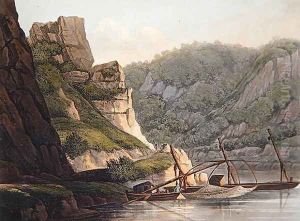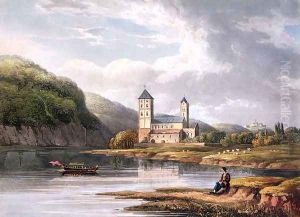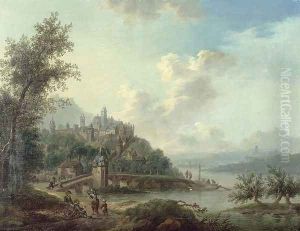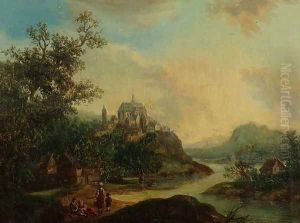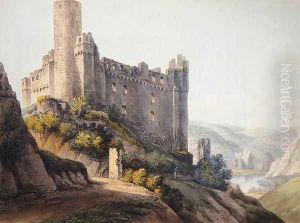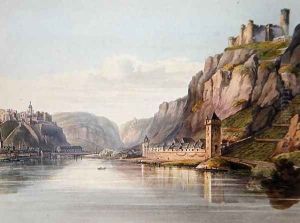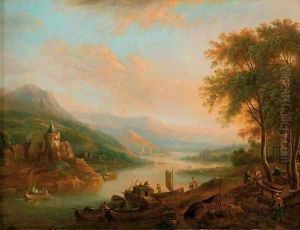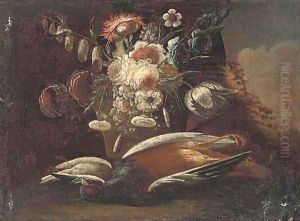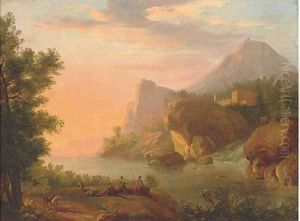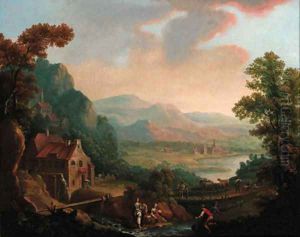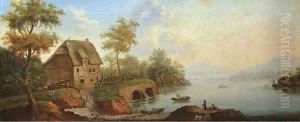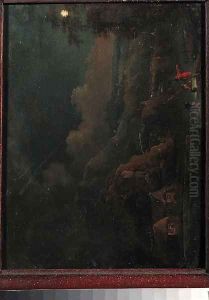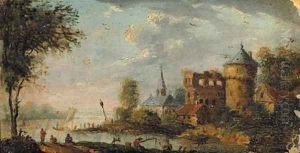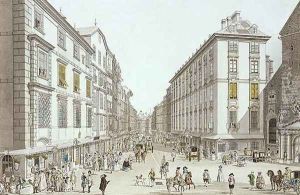Christian Georg II Schutz or Schuz Paintings
Christian Georg II Schutz or Schuz was a German landscape painter born in Flörsheim am Main in 1758. He was part of a family deeply entrenched in the arts, as his father, Christian Georg Schutz the Elder, was also a distinguished artist, known for his landscape paintings. This familial background provided Christian Georg II with early exposure to the arts and an environment that nurtured his developing talents.
Schutz embarked on his artistic career during a period when the appreciation for landscape painting was growing in Europe. He was particularly influenced by the Dutch landscape painters of the 17th century, whose attention to detail and atmospheric effects can be seen reflected in his work. Schutz managed to carve out his own style, however, focusing on the German countryside and capturing its beauty and variability with a keen eye for detail and a profound sense of naturalism.
Throughout his career, Schutz was active in Frankfurt am Main, where he contributed significantly to the local art scene. His landscapes often depicted the Rhine region and were celebrated for their accuracy and the way they evoked the spirit of the place. His works are characterized by dynamic compositions, meticulous detail, and a vibrant palette that together create lively and engaging scenes.
Schutz's contributions to the German landscape painting tradition were significant, as he helped to elevate the genre and inspire a sense of national pride through his depictions of the German landscape. His ability to blend realism with a sense of idyllic beauty made his works popular among art collectors and the general public alike.
Christian Georg II Schutz passed away in 1823, leaving behind a legacy that continued to influence German landscape painting. Today, his works are held in high regard and can be found in various art collections and museums across Germany and beyond, celebrated for their contribution to the development of landscape painting in the 18th and early 19th centuries.
